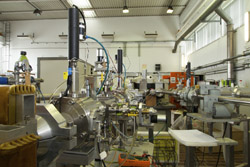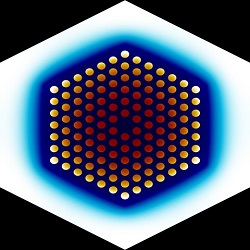Sharing actinide research facilities
Actinides are radioactive elements, typically with long half-lives, and include the major actinides uranium and plutonium as well as minor actinides. Studying actinides’ behaviour throughout the nuclear fuel cycle from mining to geological disposal of waste requires special tools and facilities and only a limited number exist in Europe. The EU-funded project 'ACTINET integrated infrastructure initiative' (ACTINET-I3)(opens in new window) reinforced the infrastructure and accessibility of European facilities with the experimental and theoretical tools necessary to tackle the actinide challenge. Funding made possible 59 joint research projects conducted by more than 70 young researchers at the five participating facilities. Topics addressed consisted of actinide materials, actinide chemistry related to separation and actinides in the geological environment. Four joint research activities aimed at improving instrumentation at facilities and collecting data of common interest that was realised through collaboration among consortium partners. Experiments were complemented by development of a virtual infrastructure providing support in theory and modelling. Aside from research and enhancements to research infrastructure, the project sought to reinforce European expertise through training of the next generation of scientists. Among training and educational activities were the organisation of three summer schools and two plenary meetings as well as sponsorship of student travel grants. Today's young researchers will thus be in a better position to develop tomorrow's actinide management strategies based on sound scientific knowledge. ACTINET-I3 made a major and lasting contribution to the advancement of actinide research through better use of specialised facilities otherwise available to a limited few. Researchers from European universities and academic institutions shared their knowledge with the network and in turn increased their own expertise. The interactions have enhanced the position of European actinide sciences and contributed to the future of clean and sustainable European nuclear energy generation.







